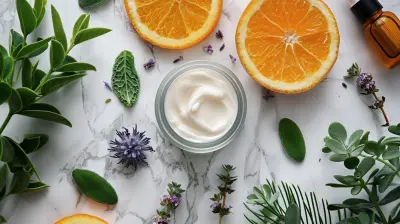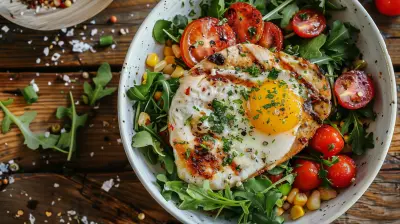Plant-Based Power: Top Vegan Protein Sources for Peak Performance
6 September 2025
When it comes to fueling your body for peak performance, protein is the star player. But who says you need meat or dairy to get enough? Whether you're an athlete aiming for muscle growth, a weekend warrior looking for endurance, or just someone committed to a plant-based lifestyle, there are plenty of powerful vegan protein sources to keep you strong and energized.
Let’s dive into some of the best plant-based protein options that can help you crush your fitness and health goals. 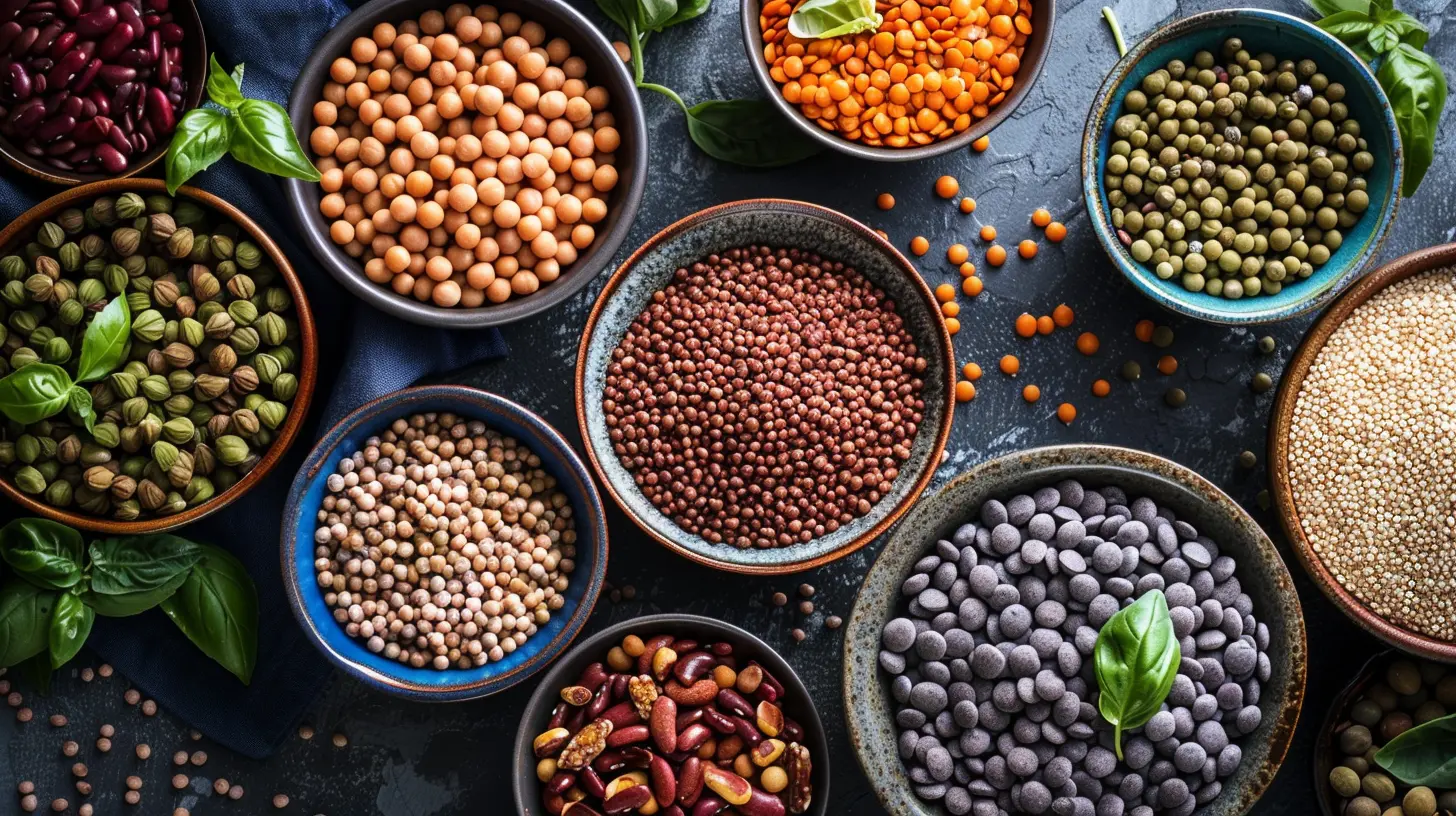
Why Is Protein Essential for Performance?
Before we get into the top vegan protein sources, let’s talk about why protein matters in the first place.Protein is the building block of muscles, tissues, enzymes, and hormones. It plays a critical role in repairing and building muscles after workouts, keeping your metabolism strong, and keeping you feeling full and satisfied.
For active individuals, getting enough protein ensures optimal recovery, prevents muscle breakdown, and boosts endurance. So, whether you're lifting weights, running marathons, or just hitting the gym for a quick session, making protein a priority is essential.
Now, let’s get to the real question: What are the best plant-based protein sources? 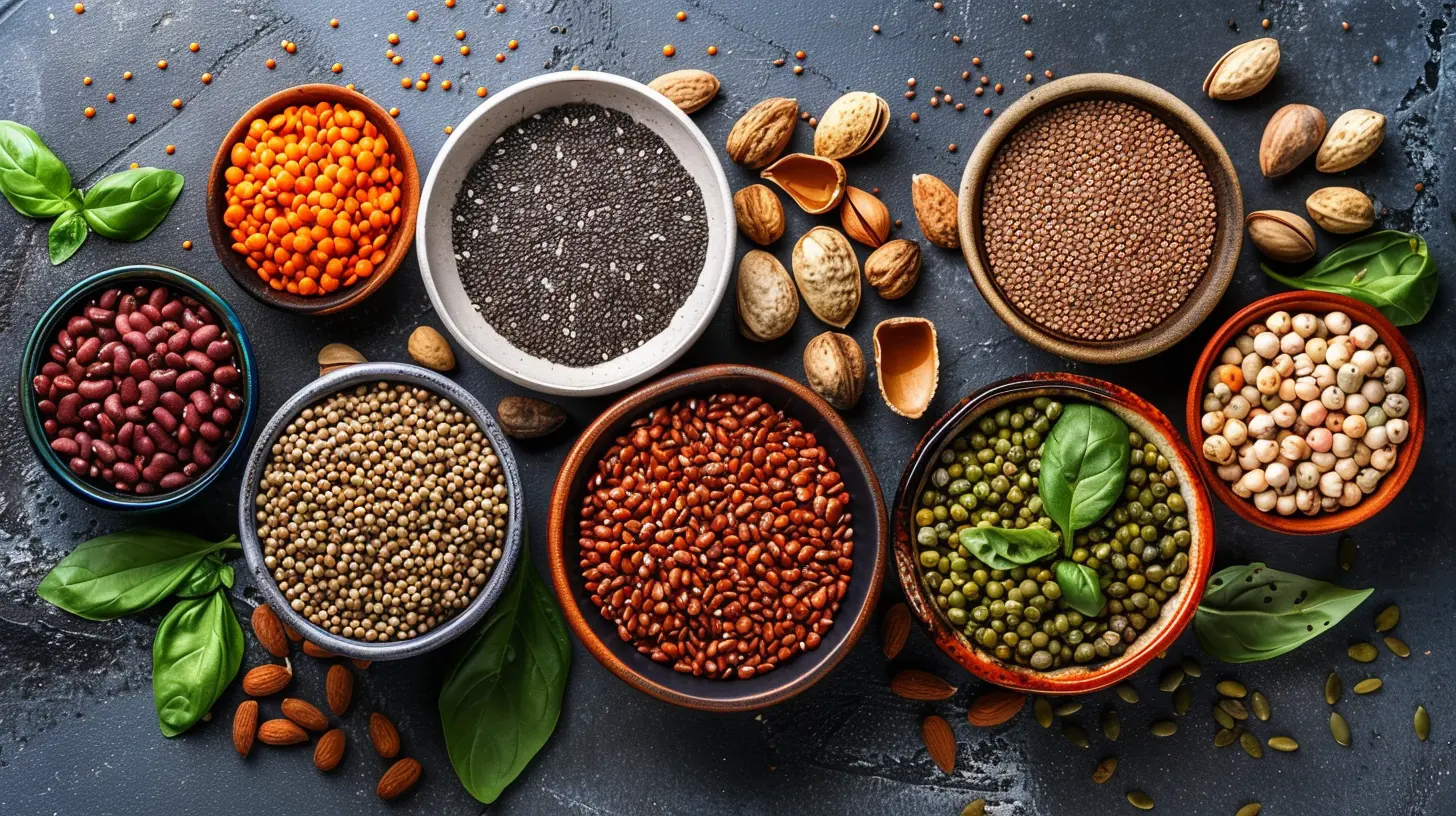
Top Vegan Protein Sources for Peak Performance
1. Lentils – A Legume Powerhouse
Lentils are little nutrient bombs packed with protein, fiber, and essential nutrients. Just one cup of cooked lentils contains around 18 grams of protein, making them an excellent choice for muscle recovery and energy.Why are they great for performance? Besides being rich in protein, lentils have complex carbohydrates that provide a steady energy release—so you won’t crash mid-workout. Plus, they’re loaded with iron, which is crucial for oxygen transport in the blood.
How to Use Them?
- Add them to soups or stews- Toss them into salads for an extra protein punch
- Make delicious lentil-based curries or burgers
2. Chickpeas – The Ultimate Plant Protein
Chickpeas, also known as garbanzo beans, pack a serious protein punch with 15 grams per cooked cup. They are also rich in fiber and slow-digesting carbs, making them a fantastic option for long-lasting energy.Chickpeas help with muscle repair and keep you feeling full longer, making them a staple in many vegan diets.
How to Use Them?
- Make hummus for a tasty spread or dip- Roast them for a crunchy, high-protein snack
- Add them to salads, stir-fries, or grain bowls
3. Quinoa – The Complete Protein Grain
Unlike most plant-based sources, quinoa is a complete protein, meaning it contains all nine essential amino acids. One cup of cooked quinoa provides about 8 grams of protein, along with fiber, iron, magnesium, and antioxidants.Quinoa is a perfect pre- or post-workout food due to its balanced macronutrient profile. Plus, it’s naturally gluten-free, making it a great choice for those with sensitivities.
How to Use It?
- Use it as a base for grain bowls- Mix it into salads for extra protein
- Cook it as a side dish instead of rice
4. Tofu, Tempeh, and Edamame – The Soy Protein Trio
Soy-based foods are some of the best sources of plant protein, offering about 10-19 grams of protein per serving depending on the type.- Tofu (bean curd) is a versatile protein-rich food that takes on the flavor of whatever you cook it with.
- Tempeh is fermented soybeans, making it easier to digest and slightly higher in protein than tofu.
- Edamame (young soybeans) offers a fresh, slightly sweet flavor and boasts a great nutrient profile.
How to Use Them?
- Stir-fry tofu or tempeh with veggies- Snack on steamed edamame
- Use tofu as a meat substitute in scrambles, tacos, or burgers
5. Seitan – The "Wheat Meat" Protein Beast
If you’re looking for a high-protein meat alternative, seitan is a fantastic option. Made from gluten, it contains around 21 grams of protein per serving—which is as much as some animal proteins!Seitan has a chewy texture that resembles meat, making it a favorite among vegans and vegetarians who crave that hearty bite.
How to Use It?
- Pan-fry or grill it for sandwiches- Add it to stir-fries or curries
- Use it as a meat alternative in fajitas or wraps
6. Chia Seeds – Tiny But Mighty
Chia seeds may be small, but they’re packed with 5 grams of protein per 2 tablespoons. They also provide a hefty dose of omega-3s, calcium, and fiber, making them a superfood for overall health and endurance.Chia seeds form a gel-like consistency when soaked, which helps with hydration—a big plus for athletes and active individuals.
How to Use Them?
- Make chia pudding for breakfast or dessert- Sprinkle them on smoothie bowls or oatmeal
- Add them to homemade energy bars
7. Hemp Seeds – One of the Best Plant Proteins
Hemp seeds are a complete protein source, meaning they contain all essential amino acids. They offer about 10 grams of protein per 3 tablespoons, along with a good dose of healthy fats and magnesium.Athletes love hemp seeds because they promote muscle recovery, reduce inflammation, and support overall health.
How to Use Them?
- Blend them into smoothies- Sprinkle them on salads or soups
- Add them to homemade protein bars
8. Pumpkin Seeds – A Protein-Rich Snack
Pumpkin seeds (also called pepitas) provide around 7 grams of protein per ounce, plus they’re rich in magnesium, zinc, and healthy fats.These little seeds help with muscle function, recovery, and immune support—making them an ideal snack for those who work hard in the gym.
How to Use Them?
- Eat them as a snack- Add them to oatmeal or yogurt alternatives
- Blend them into homemade energy balls
9. Black Beans – A Muscle-Building Staple
Black beans pack 15 grams of protein per cooked cup, along with fiber and essential micronutrients. They help with digestion, stabilize blood sugar, and provide long-lasting energy—perfect for anyone pushing through intense workouts.How to Use Them?
- Make black bean chili for a high-protein meal- Use them in tacos or burritos
- Blend them into homemade veggie burgers
10. Nutritional Yeast – The Vegan Cheese Alternative
Nutritional yeast is a game-changer—not only does it add a cheesy, nutty flavor to dishes, but it also provides around 8 grams of protein per 2 tablespoons. Plus, it’s often fortified with vitamin B12, a nutrient that can be tricky to get on a vegan diet.How to Use It?
- Sprinkle it on popcorn or pasta- Mix it into sauces or dressings
- Use it as a topping for roasted veggies
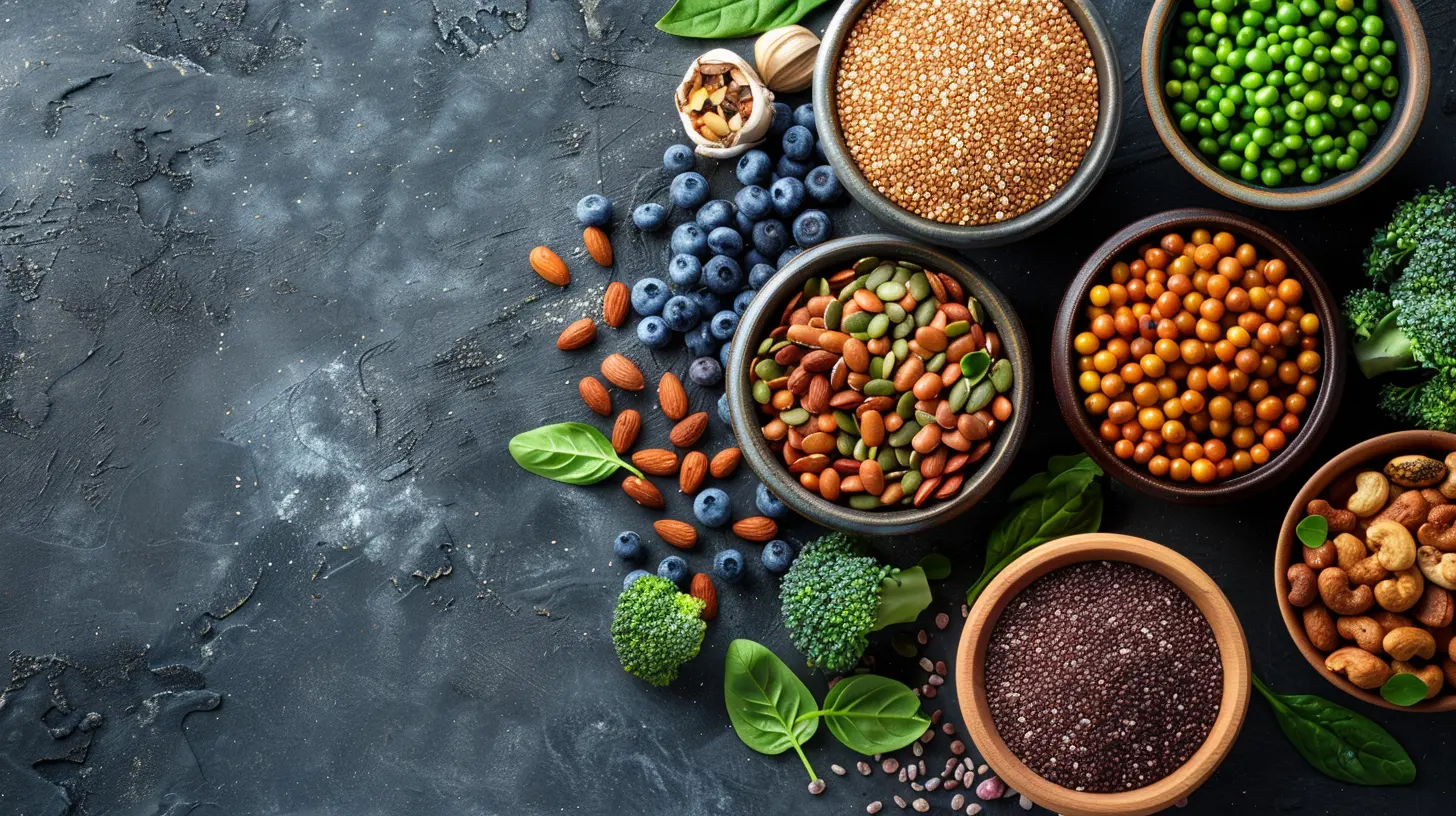
How Much Protein Do You Need?
The amount of protein you need depends on your activity level:- Sedentary individuals: Around 0.8 grams per kilogram of body weight
- Active individuals: Around 1.2-2.0 grams per kilogram of body weight
- Athletes or bodybuilders: Closer to 2.0 grams per kilogram
If you weigh 70 kg (154 lbs) and exercise regularly, you might need around 84-140 grams of protein daily—which is easily achievable with plant-based foods! 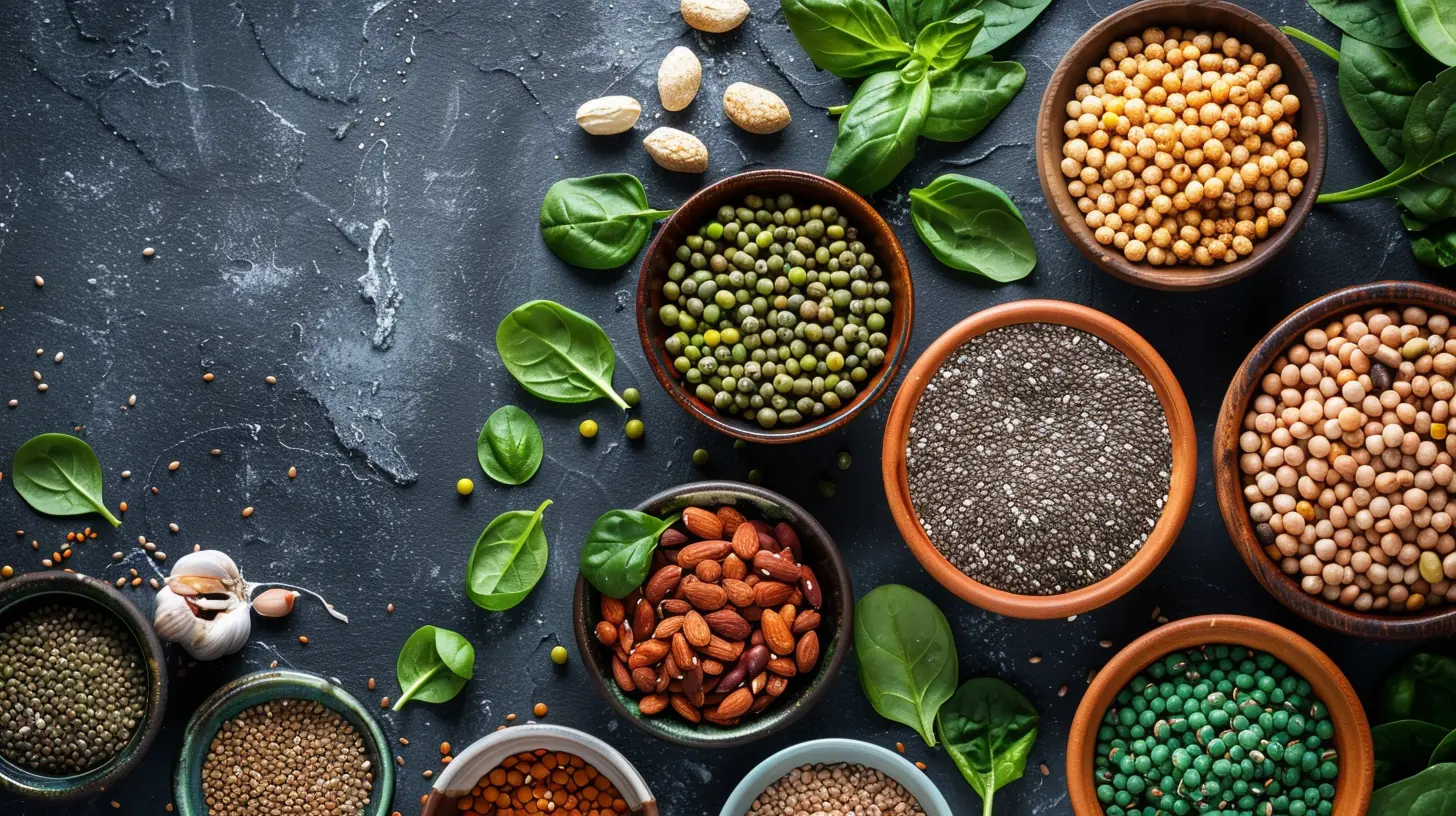
Final Thoughts: Vegan Protein for Performance
You don’t need animal products to build strength, endurance, or muscle. With the right mix of plant-based protein sources, you can fuel your body, recover efficiently, and feel your best—all while sticking to a compassionate and sustainable diet.So next time someone asks, "Where do you get your protein?"—just point them to lentils, quinoa, hemp seeds, and all the other amazing vegan protein sources out there!
all images in this post were generated using AI tools
Category:
Sports NutritionAuthor:

Madeline Howard
Discussion
rate this article
1 comments
Zane Monroe
Incorporating diverse plant-based proteins can enhance athletic performance and overall health, supporting muscle growth and recovery effectively.
September 13, 2025 at 2:34 AM

Madeline Howard
Absolutely! Diverse plant-based proteins not only support muscle growth and recovery but also contribute to overall health, making them essential for peak athletic performance.
